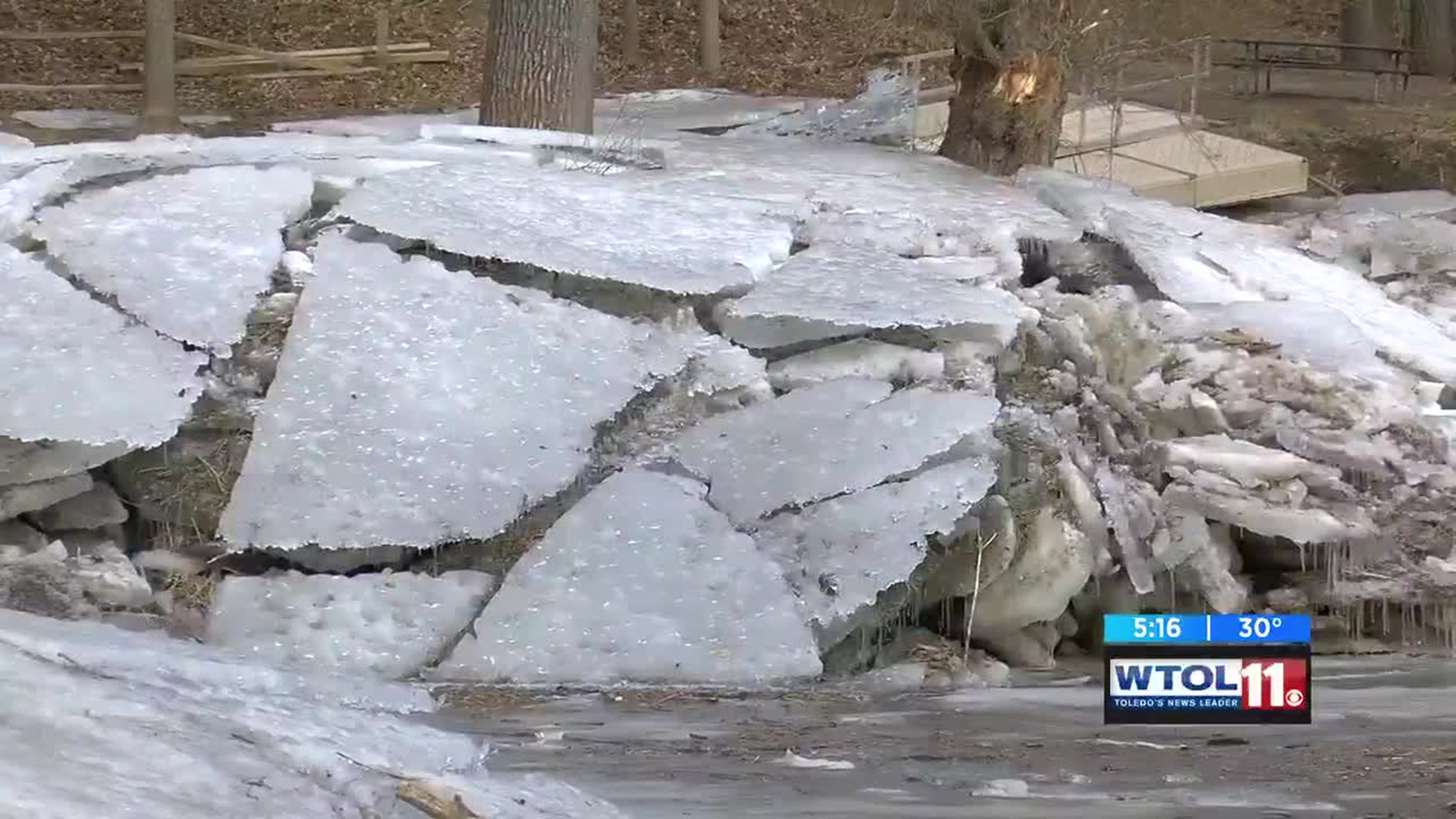TOLEDO (WTOL) - The destructive power of moving ice was on display along river road at Side Cut Park as giant mounds of ice line river road, and work crews labored Thursday with the task of clearing the debris and trees that were swept away by the recent jams.
At Side Cut near Maumee, scores of people walked the grounds to enjoy a brief respite of sunlight and to take a closer look at the extensive damage caused by the force of the ice. Others snapped pictures on their cellphones. One man taking pictures was a native of Southeast Asia who was sending the photos of the yawning ice field to his family in Laos and Thailand.
“They never seen anything like this before”, he said.
He has been in the Toledo area for almost 40 years and has never seen the ice piled up like this in past years.
The damage is extensive as charcoal grills, signs, and light poles were left bent over, and hundreds of trees were displaying scars inflicted by the glacier-like river of ice that moved across the park.
At nearby Riverside Cemetery near the I-475 bridge, drivers could look down and view the tombstones and markers strewn across the graveyard. Many were on their sides, or toppled and carried away to the back of the cemetery property. It is not the first time this sort of damage has been dealt to the floodplain cemetery. The last time was in 2015 and work crews and volunteers helped reset the granite tomb markers and get the graveyard looking good.
One of the people walking through Riverside to inspect the damage said her family’s grave markers had been shoved away and buried by the ice shelf.
Along River Road, part of which has been washed away, the mix of dirty snow and shards of broken limbs is piled high creating an ugly roadside wall. A stark reminder of the power of a ice packed river on the move.
It’s a frozen fence that will stubbornly remain until winter turns to spring and melts it into memory. How soon that will take is still uncertain and with walleye fishing season about to get underway in a few weeks, there are growing concerns that many anglers may not have access to the river.

